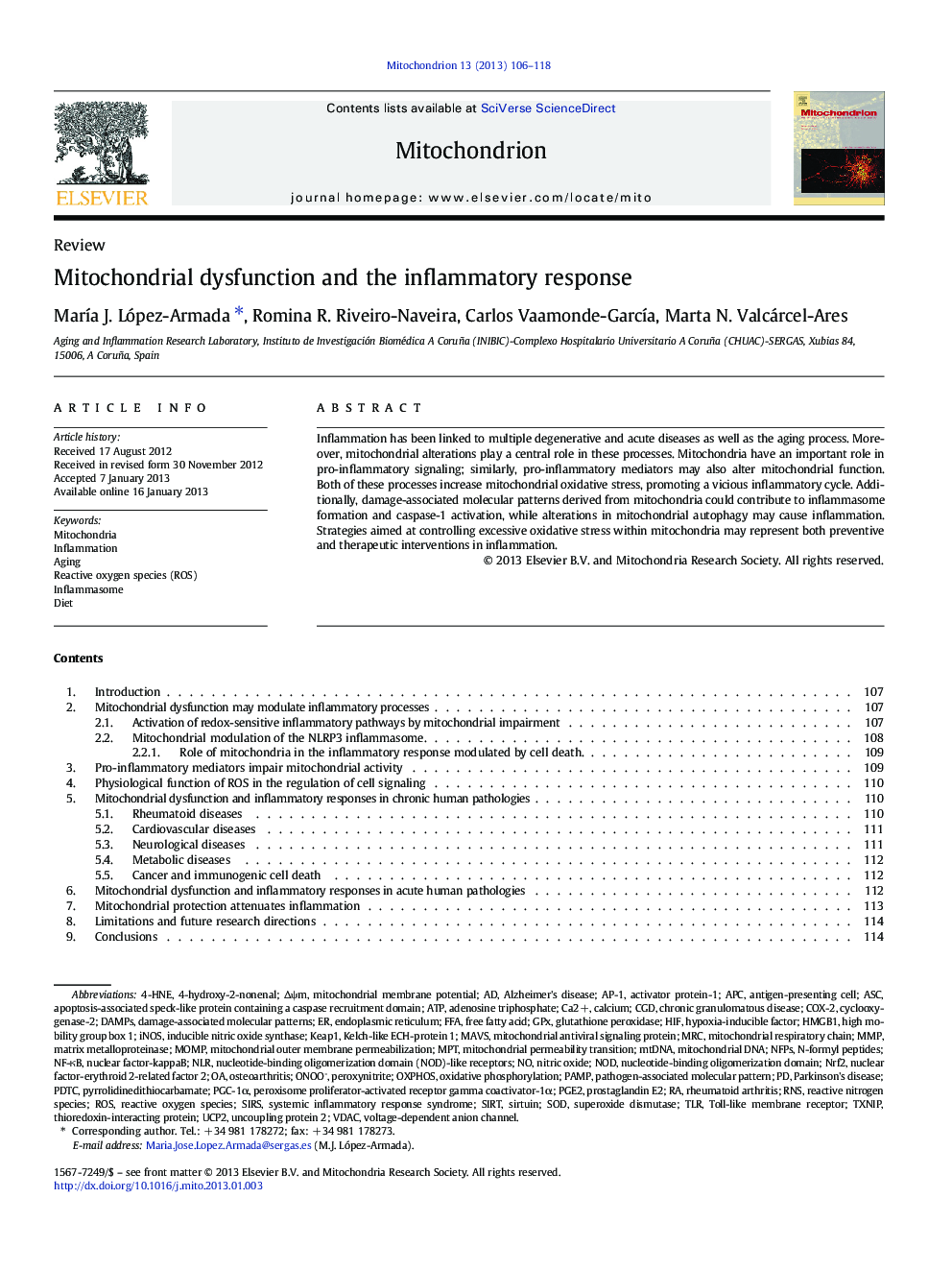| Article ID | Journal | Published Year | Pages | File Type |
|---|---|---|---|---|
| 2069562 | Mitochondrion | 2013 | 13 Pages |
Inflammation has been linked to multiple degenerative and acute diseases as well as the aging process. Moreover, mitochondrial alterations play a central role in these processes. Mitochondria have an important role in pro-inflammatory signaling; similarly, pro-inflammatory mediators may also alter mitochondrial function. Both of these processes increase mitochondrial oxidative stress, promoting a vicious inflammatory cycle. Additionally, damage-associated molecular patterns derived from mitochondria could contribute to inflammasome formation and caspase-1 activation, while alterations in mitochondrial autophagy may cause inflammation. Strategies aimed at controlling excessive oxidative stress within mitochondria may represent both preventive and therapeutic interventions in inflammation.
► Mitochondrial dysfunction activates the redox-sensitive factor NF-κB pathway. ► Mitochondrial impairment induces NLRP3 inflammasome activation. ► NLRP3 inflammasome/NF-kB pathways work together to activate inflammatory cytokines. ► Inflammatory mediators induce mitochondrial dysfunction.
